Democrats Upend Primary Cycle. At Least for 2024. Maybe.
South Carolina and Georgia win! Iowa loses! New Hampshire whines!
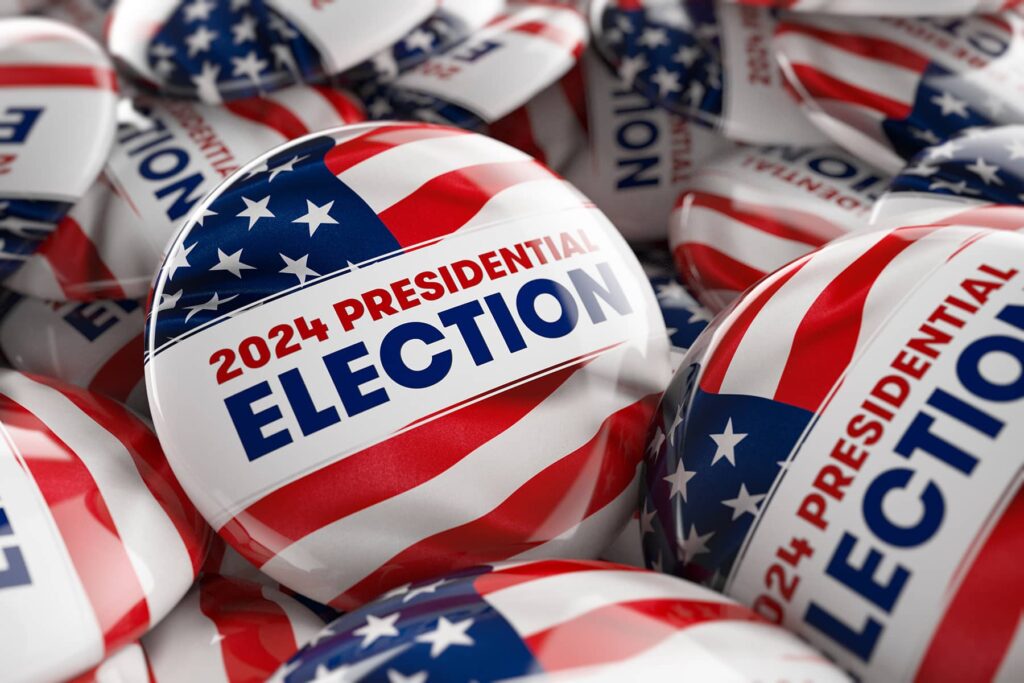
NPR (“Democrats vote to upend presidential primary calendar for 2024 but challenges persist“):
Members of the Democratic National Committee overwhelmingly voted to reshuffle the party’s presidential primary calendar, booting the Iowa caucuses from the early slate of states and boosting primaries in South Carolina, Nevada, Georgia and Michigan.
The vote Saturday, which punctuated a three-day gathering in Philadelphia, ratifies a proposal the Rules and Bylaws Committee (RBC) made in December and officially cements what many Democrats have long called for: the elevation of states that are more reflective of the Democratic party’s diversity.
“Folks, the Democratic party looks like America and so does this proposal,” DNC Chair Jaime Harrison said ahead of the vote.
The RBC made its recommendation after conducting a lengthy process in which states interested in one of the coveted early window spots pitched the committee on areas of diversity, voter access, and competitiveness in a general election.
Under the adopted proposal, which President Biden himself advocated for in a letter to the RBC in December, the 2024 presidential calendar will have South Carolina in the plum first position on Feb. 3, followed by New Hampshire and Nevada jointly sharing the no. 2 slot on Feb. 6, then Georgia on Feb. 13 and Michigan on Feb. 27.
It’s a calendar that in many ways rewards states that helped propel Biden to the White House in 2020, including South Carolina, which drastically shifted Biden’s presidential fortunes.
“It’s a big day for the state of South Carolina, and I would say not just South Carolina, but our region,” said Trav Robertson, chairman of the South Carolina Democratic Party. “It is a clear indication that the DNC is no longer going to take the South for granted.”
As I noted two months ago, when this was floated,
The optics of moving up the state that turned the tide for the sitting President [South Carolina] and punishing a state where he has historically underperformed [Iowa] aren’t great but, in reality, the 2024 nomination is Biden’s regardless unless he decides not to or is unable to run. And serious election analysts, regardless of party affiliation, of argued for years that Iowa and New Hampshire are incredibly unrepresentative states.
This is, therefore, a bold move. I’m not exactly sure how it’s going to work, though, with Republicans not going along. It would be incredibly expensive—not to mention confusing—for each state to hold two primary contests.
Even aside from that question, some Democrats are concerned about the logistics of the shift. Mostly, though, it’s just more whining by Iowa and New Hampshire that their longstanding and completely undeserved primacy is being undercut:
But the sweeping calendar changes are not without hurdles – and they come in the form of outstanding questions about whether New Hampshire and Georgia can meet the demands imposed on them by the national party.
Members of the Iowa and New Hampshire Democratic delegations energetically voiced opposition to the new calendar Saturday before the official vote.
“I vigorously support our president and I support the principles that guided the calendar,” said Rita Hart, chair of the Iowa Democratic party. “But I cannot support a proposal that further erodes Democratic party support in my state and the entire middle part of the country.”
Joanne Dowdell, a member of the RBC from New Hampshire, said it “broke my heart to vote against [Biden’s] proposed calendar.”
“I agree with my colleagues that it is essential that we lift up diverse voices in our presidential election process,” she said. “When some members say that we are frustrated or that we are attacking them by standing up for New Hampshire, it is frustrating. It is frustrating the DNC is set to punish us despite the fact we don’t have the ability to unilaterally change state law.”
New Hampshire Democrats, who for generations have viewed the first primary in the nation as their political birthright, insist following the DNC’s marching orders on the primary schedule isn’t up to them. They point to a state law that gives the secretary of state, currently a Republican, the power to move the date of the primary to protect its first-in-the-nation status.
But there is an actual problem here, one we’ve known about for years and one that’s more subtle:
“This is not about New Hampshire’s history or our pride,” Dowdell said. “This is about state law.”
The DNC is not only requiring that states in the early window hold the primary on the dates specified by the national party but also implement expanded voter access – something New Hampshire Democrats say is a political impossibility.
“We have a Republican trifecta on the state level with Republicans controlling the governorship, the House, and the Senate, and they have all said very clearly and colorfully that these provisions are non-starters and will not be done,” longtime New Hampshire Democratic party chair Ray Buckley told reporters Friday.
“We’re in an impossible, no-win position,” he said. “We know that New Hampshire will still hold the first-in-the-nation primary, whether or not the DNC approves of it.”
That New Hampshire has a law that automagically keeps its primary first by moving it in response to any other state that tries to match or get ahead is a longstanding issue. That Republicans control the state and are especially unlikely to compromise, given that the GOP primaries don’t seem to be making a commensurate move, complicates the issue.
Then again, the solution is obvious: screw New Hampshire. The national parties, not the several states—let alone the least significant ones—get to decide how their candidates are selected. The Granite State can either get on board or pound sand.
But if that happens – which Buckley stressed is not a hypothetical but an eventuality – DNC rules will be triggered and consequences will be meted out.
“It wouldn’t be the first time states have tried to jump the line,” RBC member Mo Elleithee told NPR. “I hope it doesn’t come to that. But I think the DNC is probably better prepared to enforce this calendar than it ever has been.”
In December, the DNC detailed the enforcement actions it is prepared to take. Should a state – like New Hampshire – not meet the requirements and hold its primary early anyway, the state automatically loses half its delegates.
Presidential candidates would also be precluded from campaigning — which includes putting their name on the ballot — in any state that goes outside the DNC-approved window.
Cutting New Hampshire’s delegates in half really isn’t that much a punishment, in that they contribute a negligible amount of delegates to the overall count. Their power has come from being seen as a culling mechanism to weed out lesser candidates. Simply not recognizing it as a real primary if it comes before the party’s schedule would seem the more effective solution.
“The DNC can choose to do whatever they wish to do,” Buckley said. “But it seems odd that we would be punished for doing something that is completely out of our control.”
It’s . . . completely in New Hampshire’s control. But, yes, the fact that Republicans are in the decisionmaking role—and, again, that the Republican primary calendar will not be in sync—is problematic. But, again, screw them.
Both New Hampshire and Georgia have received extensions on meeting the DNC’s requirements via a waiver process until early summer.
When asked what would practically change between now and then, Buckley said the extension “was offered to us and we took that as an olive branch that there will be an option to have further conversation and try to make this work.”
¯\_(ツ)_/¯
Dowdell and Buckley’s comments come amid exasperation from some DNC members who are sympathetic to New Hampshire’s political uphill battle but frustrated by the public nature of their complaints.
The state’s Democratic U.S. senators recently skipped a White House congressional gala in protest and have vowed the primary will continue as usual. A group of Democrats, including former Gov. John Lynch, warned Biden the new calendar could affect the president’s reelection campaign. Former Democratic New Hampshire House Speaker Steve Shurtleff went as far as to say he would look for another candidate to support if the state lost its first place spot.
“We get it – they have a Republican legislature, they’ve got a Republican governor,” Elleithee said. “I look forward to seeing them put the same level of energy into fighting that as they are into fighting us.”
Did I mention Screw them? Because really. Screw them.
Elleithee said Georgia, which has been critical in delivering the U.S. Senate for Democrats in the past two election cycles, made “one of the most compelling pitches of all the states that came in.”
“They sort of hit all the criteria and really fit into the framework that we set as to the values and the factors that we cared about,” he said. “They came in hot, they came in strong, and they were impressive.”
But like New Hampshire, Georgia faces significant challenges in meeting the DNC’s requirements, as Republicans control the state government there as well.
The Republican National Committee has retained its lineup of early states: Iowa, New Hampshire, Nevada and South Carolina. Georgia Secretary of State Brad Raffensperger, a Republican, has said both parties’ primaries must be held on the same day to minimize the costs of administering elections.
Wendy Davis, a DNC member from Georgia, said state Democrats now have to work to convince “Republican leaders that [moving the primary up] is good for our state, not just that it’s good for Joe Biden.”
I’m more sympathetic to Georgia here because this isn’t a problem of their own doing. It is indeed unreasonable to expect states to hold two primary votes. It’s not only expensive but logistically challenging. It typically requires school closures and finding armies of election volunteers.
Davis points to the outsized attention states receive when they are slotted in the early window, along with the major economic boon that comes with hosting an early primary.
“There’s campaign spending there. Ask people in Iowa who sell snow shovels – they sell more snow shovels in a caucus year than they do any other time,” she told NPR.
I’m not sure snow shovel sales should really factor in although, in election season, there is a lot of shoveling to be done.
“A lot of money is spent on radio and TV with direct mail, houses buying yard signs, all the things you think of in a campaign,” she said. “The reality in my town, for example, which is 35,000 people in Rome, Georgia — people who are running for president will be buying radio ads on our little radio stations. That’s an influx of revenue that if we are on Super Tuesday, we don’t get.”
Super Tuesday is massive but probably not like having a standalone primary with two weeks of fallout before the next vote. Of course, to the extent that economic benefit—and outsized influence on the outcome of the race—is factored into the equation, the more sense it makes to have a rotation system wherein given blocks of states all go on the same day but with variable order over successive primary seasons.
But just like Democrats, Republicans could face their own penalties, including a loss of delegates, for holding their primary out of order.
Again, this was an obvious issue that I pointed out in December: the two parties really need to negotiate a common primary schedule. And, yes, I’m aware that they’re not exactly in a cooperating mood these days.
The DNC will meet again in June to review where Georgia and New Hampshire stand in meeting the party’s requirements.
Biden has encouraged the DNC to revisit the process of evaluating states for the early window every four years.
Elleithee said the current calendar “makes a lot of sense for a race in which we have an incumbent Democratic president running for reelection with no serious opposition.”
Biden has not yet officially announced his reelection bid.
“It might not be the calendar that makes sense in 2028 when we have a wide open field,” Elleithee said. “And so we’ll be making decisions on what makes sense in that environment. Doing this now sets the precedent that we can do it moving forward, when it’s going to have an even greater impact.”
Robertson of the South Carolina Democratic Party said revisiting the calendar each cycle is critical.
“The fact is that the only way you survive is to evaluate, adapt and change,” he said.
I actually think that approach is folly. The advantage of making longterm decisions right now is that the 2024 primaries are likely to be uncontested, meaning changes won’t benefit any given candidate. That’s a perfect time to think strategically and long-term. While my longstanding preference is for a national primary followed by a run-off, the aforementioned rotating regional primary system would also work nicely. Simply divide the country into, say, five groups of states that are roughly equal in population and diversity (urban/rural/demographic) and randomize who goes first, second, third, fourth, and fifth and the first go-round and how they’ll rotate thereafter.
Obviously, given their different constituencies, Democrats are more concerned about giving Black and Hispanic voters a bigger voice in the nomination process, whereas Republicans are perfectly happy to have rural, white voters in Iowa and New Hampshire have the first cut at culling the candidates. They’re salt-of-the-earth Real Americans, after all. But, to the extent that both parties are really competing only in a handful of “swing” states, with the vast majority of states essentially locked in several elections in advance, a more diverse selection process would ultimately be equally beneficial to both.

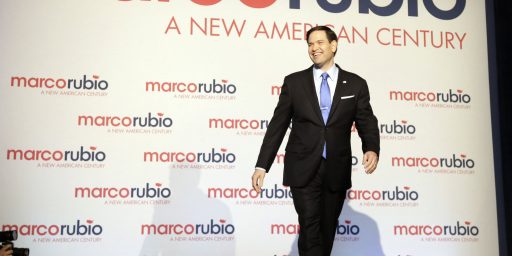
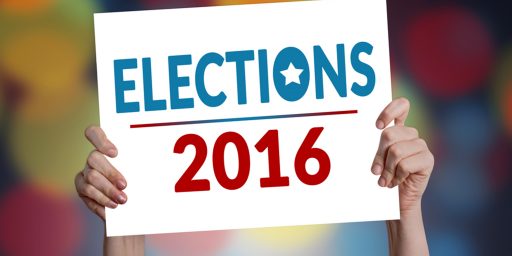
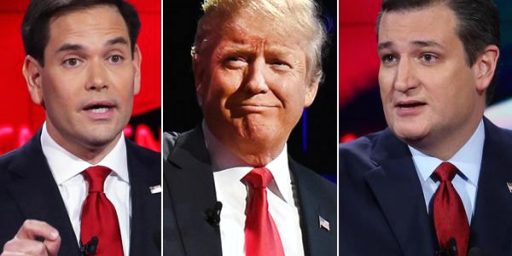
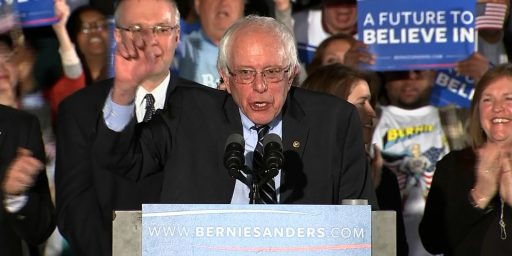
Good.
It’s never made sense for two such tiny, almost lily-white, states given such an outsized influence on the process.
NH is the 4th whitest state, Iowa is 7th or 8th if remember correctly. Good for SC.
I presume the main reason some Dems are more nervous about NH than Iowa is because they worry it could damage them politically in Dem-leaning but purplish NH, whereas they see Iowa as a lost cause that’s likely to vote R in 2024 regardless.
Personally, I’m not so worried. This is all very inside baseball to the average voter. The closest analogue I can think of was when the DNC in 2008 stripped Michigan and Florida of delegates due to some rule violations. Obama ended up winning both states in the general, but it was initially seen as a problem for him (as they were both states that were assumed to favor Hillary in the primaries, and their being taken off the table hurt her chances), and it’s hard to know how things would have played out if he hadn’t been running in a very good national environment for Dems. But I think that was a situation that was much likelier to hurt him (given his contentious battle with Hillary) than the current situation with NH.
If Biden runs for reelection, I don’t think there will be a competitive primary race (though he might get a token challenger or two). If for whatever reason he doesn’t run, and there ends up being a competitive race among two or more candidates, the chances of a situation developing where supporters of one candidate get peeved due to NH’s weakened position in the primaries, causing them to be less likely to vote for the eventual nominee in November–while something like that might be possible, it doesn’t strike me as terribly likely.
I also don’t see NH as all that winnable for Republicans. It was surprisingly close in 2016, but I think it’s a hard lift for Republicans, and it’s not something they seem to want to invest in during presidential years (Trump pretty much ignored it in 2020, while making serious efforts in two other states that went narrowly for Hillary, Minnesota and Nevada), I think because it’s got so few electoral votes and is much less rewarding for them in terms of some broader strategy in targeting its region and demographics.
I know it is from the previous post, but I think this is overblown at best:
SC was already early in the process and while the state itself is red, the Democratic electorate (which is all that matters for this topic) is heavily Black, which is the issue at hand.
Iowa was always a media creation and is well past time to go.
The notion that the primary process in a given state is linked to the general election outcomes is always certainly wrong. They are not the same contests. They serve different purposes with different electorates using different rules.
And the notion that some substantial number of D voters in NH will vote R out of spite over the primary calendar strikes me as ignoring partisan behavior.
@Steven L. Taylor:
While I agree that the NH primary calendar isn’t likely to affect the general election, I think you’re dismissing the relationship between primaries and general elections. It’s overblown, but it isn’t nonexistent. If supporters of the losing candidate in a primary get peeved enough, the danger isn’t necessarily that they’ll vote for the other party in the general (though there’s evidence from 2008 and 2016 that there’s more of that than you’re suggesting), but that they won’t show up to vote in the first place. Primaries can be a sign of how much enthusiasm there is by party members.
Iowa is not only unrepresentative but also uses a caucus, which is hyper-unrepresentative. That was fine when party bosses picked the candidates, but absurd now that everything is voter driven.
Guess they should stop voting for Republican governors and state legislators then…
I agree in principle, but the problem is that the parties are set up and accustomed to utilizing state-run voting systems for primaries because of the development of the primary system over time that included regulation of parties and primaries by states to combat corruption, among other things.
The TLDR version is that over the last 120+ years, political parties (well, the two major parties) evolved from wholly private entities to semi-private entities subject to government regulation. Hence why state laws can govern and regulate primaries to include when they occur and rules for getting on the ballot.
The party can try to “screw” New Hampshire but the legal reality is parties gave up the right to unilaterally control their primary elections long ago in exchange for getting free/subsidized access to state-run election systems. To “screw NH”, a party would have to figure out another way to run a primary election or just ignore NH. But the state could, in theory at least, run a primary anyway. Maybe NH, being a small state, can be ignored, but this problem isn’t just about NH, but the primary system itself.
In short, the parties essentially get free public services to run their primary elections but with significant strings attached.
My longstanding view is that parties should not get this for free and that state regulation of primaries ought to be reduced. Parties should contract with a state and pay for running a primary and in that case, the party gets to decide when it happens and who gets on the ballot because the party is paying the bill.
Or, alternatively, have open primaries for all parties that all voters can participate in – a kind of preliminary election.
That requires state governments to agree to what the party wants under our current system. And state governments don’t have to agree.
So don’t expect parties to have their cake and eat it too by getting unilateral private control over a primary that the public pays for.
The political implications for Georgia could be really interesting. SecState Raffensperger has been put in a really awkward place, because “it’s good for Joe Biden” isn’t really all that relevant because Biden is assured the nomination once he announces his run. That would mean state Republican leaders’ have only two “excuses” for passing on all the ad revenue, media coverage, and outsized local sales based on the national attention given to an early primary state. One is that they don’t want to buck the order set by the RNC. And second, of course, is that Trump will call the state Republican leadership weak for rolling over for the Democrats.
I would much rather be making the DNC case to the people of Georgia than the other way around.
And to add, South Carolina was not only chosen for its demographics but also because it is much easier to change the primary date in that state compared to alternatives.
@Kylopod:
I am not sure that I said it is nonexistent.
This is a not unreasonable hypothesis, but I would love to see that evidence.
Nevada is also an interesting case. Major-party candidates must file between October 1st and 15th of 2023. It’s a vote by mail state, and as I read the statutes, ballots have to be distributed at least two weeks before election day. (As an aside, California will start mailing primary ballots on Feb 7, 2024.) Sample ballots have to be distributed even sooner. Nevada’s outcome may well be settled before South Carolina votes, just not counted and announced.
Filing dates are always fun. I believe it was in 2012 when multiple Republican candidates appeared to be gaining some momentum but came to a dead halt because they had not filed in the next couple of primary states.
@Andy:
It would be interesting. Speaking broadly, states do not recognize national party organizations, only the state parties. So, for example, the DNC probably can’t contract with the State of Minnesota, only the Democratic-Farmer-Labor Party of Minnesota could contract. Unless all the parties agreed on dates and procedures, I could see states refusing because of the load it would place on the city/county election offices.
@Michael Cain:
This is another reason to have stronger national parties. The DNC could provide the funding to pay for primary elections which would also give the national party more control over what the state parties do. But to make that work we’d have to roll back some of the federal-level campaign finance reform laws that gutted the ability of national parties to raise money.
Honestly, I think my ideas are just academic exercises. The current system is way too entrenched for significant reforms, especially the idea of rolling-back state government authority over primary elections which were, IIRC, formalized by Supreme Court decisions in the 1970s. You’d either have to get state governments to agree to give up that authority on an individual state basis, get Congress to attempt to regulate this nationally, perhaps through the carrot of federal funds for elections, or hope to get cases before the SCOTUS to overturn previous rulings. None of these seem remotely possible at this point.
@Andy: It seems to me as if this is pretty specific to Iowa and New Hampshire, which essentially imposed a national mandate on the party. It’s a problem, but just for them. The rest of the country is not obligated to obey these laws.
@MarkedMan:
Just a note that the DNC put South Carolina first by having it on a Saturday. They didn’t pressure Nevada’s state law that puts the Nevada primary on the 6th. On that, I believe their hand was largely forced: Nevada’s then-Democratic trifecta put the law in place in 2021, and with a Republican Governor now there’s little or no chance of changing it.
My expectation — quite possibly wrong — is that there will be little campaigning in Nevada except as an adjunct to fundraising in California. The round-trip from either South Carolina or New Hampshire is like 11 hours.
The cynic in me sees this kerfuffle as:
Me first!
No!! ME first!
I called it!
I had dibs!
I called eternal dibs!!
I spent Saturday in town deliberative session and Sunday recuperating from said session, so missed this post.
Lesser-known candidates tended to like New Hampshire’s retail politics. The combination of the attention and small, easy-to-traverse state made it possible for lesser-known politicians to have a chance.
New Hampshire is being told to “pound sand.” I hope that a fair number of really decent but not high-profile party members on both sides of the aisle realize their shots just got a lot longer. Expect more rich yahoos to dominant the picture.